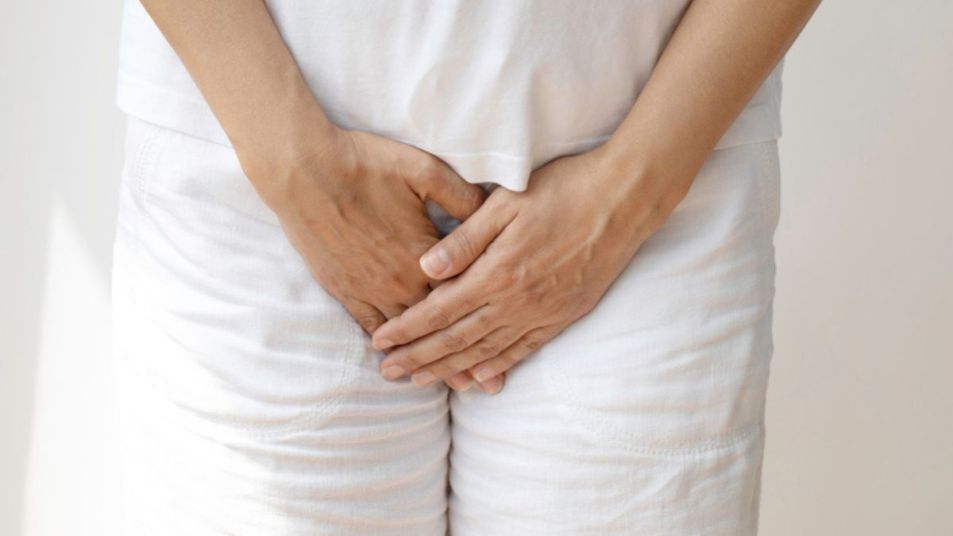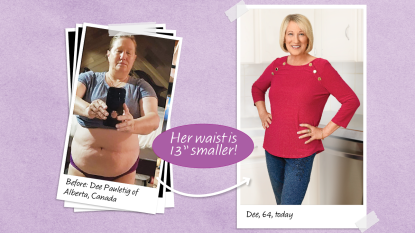Menopause Can up the Risk of Recurrent Yeast Infections — Ob/Gyn Shares 4 Tips That Can Help
While HRT may be great for taming hot flashes, it can make you more prone to yeast infections

Feel a yeast infection coming on, but just dealt with one a few months ago? Turns out that recurrent yeast infections during menopause can happen more often than they did years ago. And that’s thanks primarily to the changes in your hormones. Here, we take a deeper dive into what’s triggering these pesky infections and what you can do to prevent them.
What are recurrent yeast infections?
A yeast infection is usually the result of an overgrowth of a normal type of yeast called Candida albicans. This “causes a lot of discomfort and irritation,” says Sameena Rahman, MD, FACOG, NCMP, IF, an OB/GYN and menopause specialist at the Center for Gynecology and Cosmetics in Chicago. That can include the tell-tale signs of a yeast infection — itching and a thick, white clumpy discharge— as well as other common symptoms like redness, swelling and urinary discomfort, she explains.
While about 75% of women can expect to deal with a yeast infection at one point or another, upwards of 9% of women can have what’s known as recurrent yeast infections. This is when you have about three to four infections within a year, says Dr. Rahman. “Somebody that might have a recurrence, [it] seems like they felt better, and then a few months later it comes back,” she notes. (In some cases, recurrent infections are caused by different types of Candida yeast.)
Why recurrent yeast infections occur during menopause
Dr. Rahman says you can get more yeast infections during menopause, as well as other infections like bacterial vaginosis, a bacteria imbalance in the vagina. The primary issue? Hormones.
Typically, the vaginal microbiome is dominated by the beneficial microorganism lactobacillus, which ensures an acidic vaginal pH and helps keep infections at bay, says Dr. Rahman. During menopause, dips in both estrogen and testosterone can change the vaginal microbiome, she explains. “You go from an acidic pH to a basic one, and then you lose a lot of the normal lactobacillus [that] are protective,” she says.
This can impact vaginal tissue, including making it thinner and more easily irritated. And it may cause an uptick in infections. “I think that the natural process of aging and the susceptibility once you lose those hormones can make things worse,” Dr. Rahman adds.

Other factors that up the odds of recurrent yeast infections during menopause
While hormone replacement therapy (HRT) can be great for dealing with menopause symptoms like hot flashes, it may contribute to yeast infections. Women on HRT have “an increased potential risk of yeast infections that we see in the literature as well,” says. Dr. Rahman. For instance, a small study in The Journal of Lower Genital Tract Disease found that 49% of women on HRT had vulvovaginal candidiasis compared to just 1% of women who weren’t on HRT.
“Pregnancy and birth control pills are also linked to higher rates of yeast infections,” says Dr. Rahman. While more research on this connection is still needed, some data suggests that “estrogen impacts how virulent the yeast is, and they seem to be able to bypass our normal immune response,” she explains.
Taking antibiotics or having diabetes can also complicate things. “We know that diabetics have more yeast infections, especially those with uncontrolled diabetes,” says Dr. Rahman.
How to prevent recurrent yeast infections during menopause
If you’re dealing with recurrent yeast infections during menopause, there are a few things that can help, says Dr. Rahman.
1. Consider vaginal estrogen
Available by prescription and typically covered by insurance, topical vaginal estrogen helps stave off infections. “I think that to diminish this growth of bacteria or yeast in the vaginal microbiome, getting it back to as close to pre-menopausal as possible is really something that’s important,” Dr. Rahman says. And vaginal estrogen can help rebalance your hormone levels (without sending estrogen so high that it triggers an infection).
2. Try boric acid suppositories
Boric acid suppositories, which are available over-the-counter, are often recommended for recurrent infections, says Dr. Rahman. That’s in part because some microorganisms can develop what’s called a biofilm, which thwarts anti-fungal or anti-bacterial treatments from clearing the infection.
But boric acid can help sidestep this, Dr. Rahman says. She’ll often opt for this method if someone come in with a new infection and they’ve had recurrent infections in the past that didn’t respond well to typical medications. Typically, you’d take a boric acid suppository once daily for two weeks. One to try: Love Wellness The Killer Boric Acid Suppositories.
3. Ask about antibiotics
Dr. Rahman says that for some of her patients with recurrent yeast infections, she’ll put them on a weekly dose of fluconazole (Diflucan). That’s something that the CDC also recommends. Dr. Rahman typically prescribes 150 mg weekly for about 12 weeks. She cautions that this should be done under the direction of a physician that’s familiar with a patient’s history and their specific vaginal microbiome.
There’s also a new medication for recurrent yeast infections called Vivjoa, which was FDA-approved in 2022. It’s specifically for women past menopause or who can no longer get pregnant. Dr. Rahman has prescribed it to a few patients over the past year and says it may be helpful in patients with a rare form of yeast known as candida Glabrata. (Note: Dr. Rahman says this Rx may be harder to get covered by insurance.)
4. Avoid these irritants

As we mentioned earlier, menopause can make your vaginal tissue thinner and more prone to irritation. Ensure “you’re not using any hygiene products, soaps or detergents that can irritate your vulva and vagina,” says Dr. Rahman. That includes scented vaginal hygiene products or OTC options like aspercreme or douches, she says. Same goes for changing out of sweaty or wet clothing quickly. Not doing so can irritate and predispose you to yeast infections, add Dr. Rahman.
For more ways to support vaginal health:
Pain and Itch ‘Down There’ Can Signal a Vaginal Ulcer — See the Remedies Ob/Gyns Recommend
Bacterial Vaginosis Home Remedies: Docs Reveal What to Try + What You Absolutely Should Skip
Balancing Your Vaginal pH Can Put an End to Odors, Itching and Discharge, Say MDs
This content is not a substitute for professional medical advice or diagnosis. Always consult your physician before pursuing any treatment plan.













